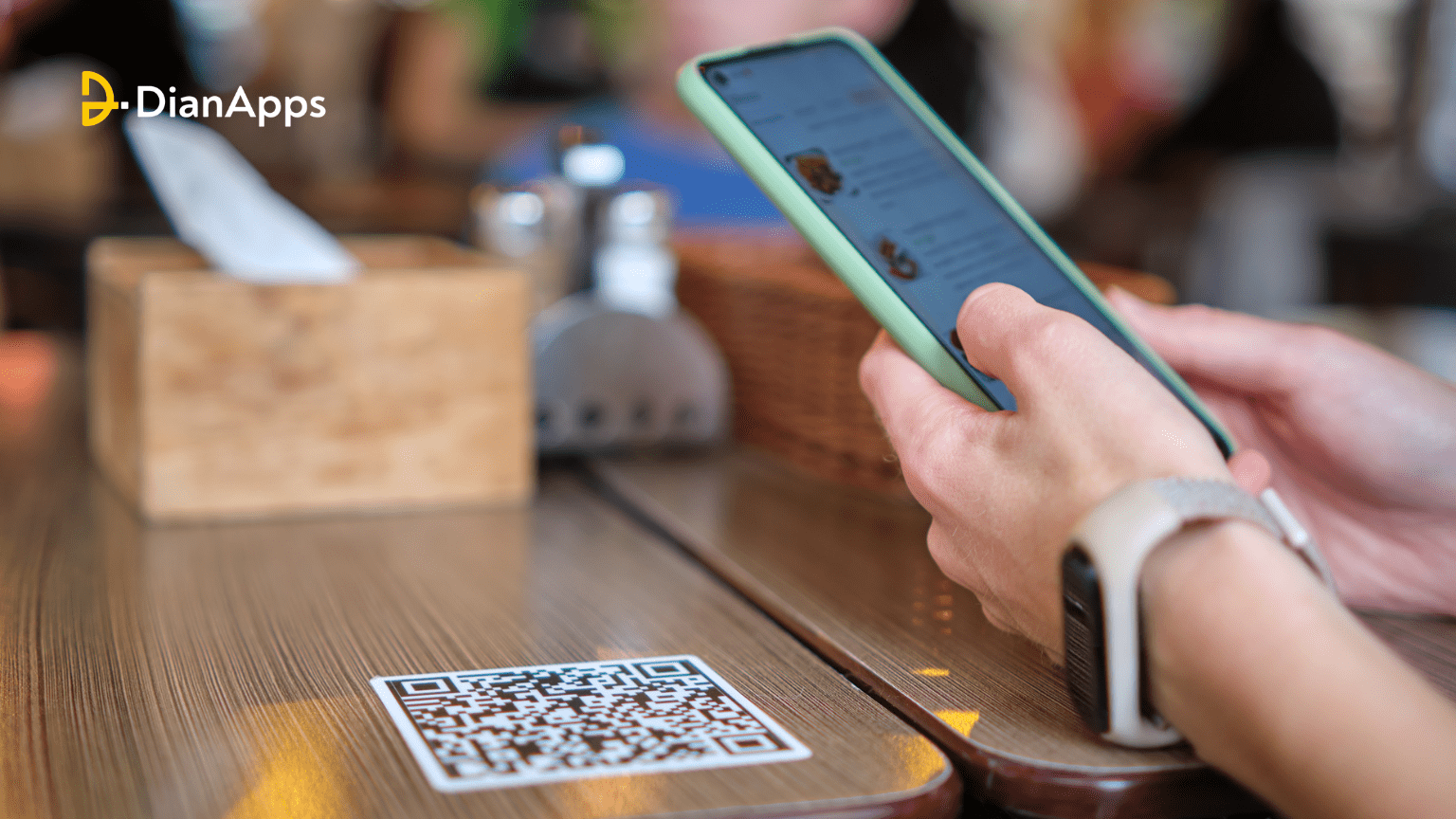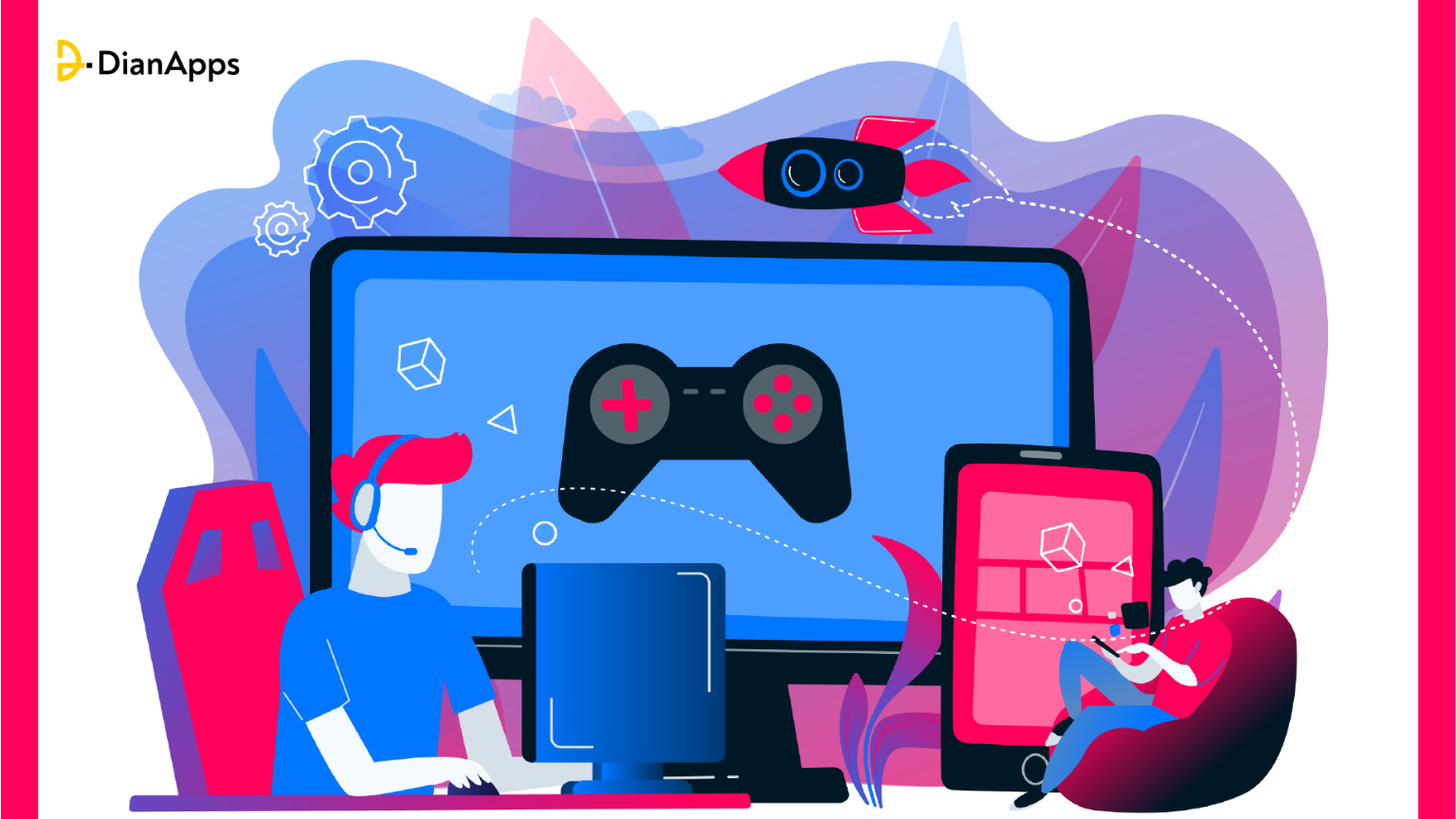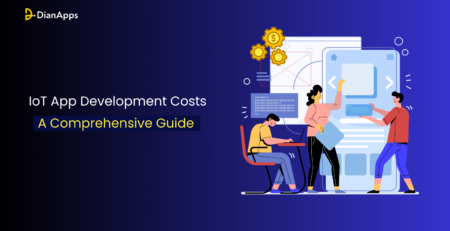Why Does Your Restaurant Need A Business Mobile App To Grow And Flourish?
In the vast business world, the buzz around developing a mobile app for your restaurant is hard to ignore. Everyone seems to have an opinion, especially app development companies eager to showcase their services. Yet, let’s step back and consider the real impact of a mobile presence.
Did you know that a staggering 60% of local mobile searches lead to customers purchasing within the hour?
Take Starbucks as a prime example – a whopping $1.6 billion of their $10 billion revenue was generated through their mobile app, proving that the shift towards mobile is a significant trend.
But, the burning question remains: Is investing in a business mobile app the right move for your restaurant?
In this blog, we’ll focus on the key points and explore why having a mobile app is not just a trend but a crucial element for your restaurant’s growth and success in the digital age.
Market Scenario of Restaurant App Development Industry
- In February 2021, 67% of U.S. consumers preferred using a restaurant’s own app or website for food delivery, while 33% opted for third-party apps or websites.
- The Meal Delivery segment is expected to reach 2.5 million users by 2027.
- The Worldwide Restaurant delivery app development market was projected to reach US$138.70 billion by 2023, with an impressive CAGR of 6.35% from 2023 to 2027.
- The estimated market volume is anticipated to be US$177.40 billion by 2027.
- The number of users in the Restaurant Delivery market is expected to reach 1.5 billion by 2027.
- Online food delivery platforms, particularly in the United States and China, have significantly transformed the global restaurant delivery market.
- In the United States, the Restaurant Delivery market was forecasted to generate the highest revenue of US$34.05 billion in 2023.
- The global revenue in the Online Food Delivery market is projected to reach US$1.22 trillion in 2024.
Necessary features of a Restaurant app

1. In-app ordering
A restaurant mobile app’s primary function is to facilitate direct order placement from customers. In-app ordering streamlines the process, allowing customers to place orders directly with the restaurant, bypassing third-party aggregators. This benefits both parties by eliminating aggregator service charges.
2. Online menu
Running a mobile app comes with the challenge of keeping menus up-to-date, but a restaurant app simplifies this task. With a click, restaurants can effortlessly update daily specials or seasonal dishes. Cloud servers ensure instant updates, and the app can send push notifications, keeping users informed about the latest additions. This seamless process showcases the efficiency of restaurant application development.
3. Table reservation
For upscale and luxury dine-in establishments, prior table reservations are crucial, ensuring efficient planning and availability of popular dishes. A restaurant mobile app simplifies the reservation process, eliminating the need for customers to make phone calls. This not only streamlines the customer experience but also provides valuable data for the restaurant, highlighting peak reservation times and popular services. The seamless integration of reservation features emphasizes the importance of creating a restaurant app.
4. Shopping cart
A well-integrated shopping cart within a restaurant app streamlines the checkout process, encompassing order placement and payment. This functionality enhances user experience, providing a seamless and convenient way for customers to finalize their orders.
Moreover, the integration of alternative payment modes adds flexibility to the checkout process. These features underscore the importance of skilled restaurant app developers in creating a user-friendly and efficient mobile platform.
5. Push notifications
Push notifications act as concise messages sent en masse to user devices, conveying information about special offers, order statuses, and various restaurant updates such as holidays or new services. Particularly beneficial for restaurant chains with multiple branches, these notifications enable targeted communication with customers in specific locations. A well-designed restaurant app incorporates push notifications, enhancing user engagement and providing timely updates to patrons.
6. Real-time order tracking
With the integration of GPS tracking, WebRTC technology, and Google Maps, modern restaurant apps establish instant connections between customers and delivery personnel.
Real-time order tracking offers customers the ability to monitor every stage, from order placement and pickup to final delivery. This ensures transparency and keeps all parties informed, enhancing the overall customer experience and establishing a sense of trust in the delivery process.
7. Customer reviews
Customer reviews play a pivotal role in influencing people to explore new restaurants, with platforms like Yelp thriving on this concept. Hence, white-label restaurant mobile apps should enable customers to easily write, publish, and peruse reviews. Beyond serving as a valuable feedback mechanism, these reviews also function as an indirect form of Word of Mouth Marketing (WOMM) for the restaurant.
8. Multiple payment modes
With the diminishing popularity of cash payments, restaurant mobile apps must adapt by providing a range of payment options. Customers now seek convenience through card payments, digital wallets, promo codes, and loyalty points. This evolution aligns with the changing stream of on-demand app development, catering to diverse preferences for seamless transactions.
9. Referral schemes
A restaurant’s budget for acquiring new customers through paid advertisements can be taxing. Leveraging a mobile app with integrated referral programs allows the restaurant to harness its existing customer base. By offering incentives like free orders or loyalty points for successful referrals, customers become advocates, driving organic growth without straining the restaurant’s finances.
10. Loyalty program
When customers engage with your restaurant app, they’re essentially building a relationship with your business. Fostering this connection is vital, and loyalty programs play a key role. By rewarding users with loyalty points for each completed order through the app, you create an incentive for continued engagement. Accumulated points can later be redeemed, providing customers with added value and encouraging loyalty.
11. Chatbot support
Customer support can be a tricky aspect because you never know when customers might need assistance. The catch is that if they seek help and you’re not available, it can negatively impact your brand image. Offering round-the-clock support is both costly and not very efficient.
This is where an AI-powered chatbot can be incredibly useful. It allows businesses to provide online support whenever required, eliminating the necessity for an agent to be available at all times. With a chatbot, customers can get assistance promptly, ensuring a positive customer experience without stretching resources thin. It’s a smart solution that enhances support accessibility without compromising productivity.
12. Social media sharing
As per Buffer’s State Of Social 2019 report, a significant 73% of marketers find social media sharing to be effective for their businesses, ranging from “somewhat” to “very effective.”
Think of social media as the digital version of the press, and a substantial portion of its content comes directly from users. When customers share their experiences, photos, and opinions on the restaurant’s mobile app, it contributes significantly to enhancing the business’s brand image.
Why mobile apps are important for restaurants?

1. An Edge Over Your Competitors
A restaurant mobile app will put you on the cutting edge of digital marketing. Many restaurants are still using old-fashioned advertising techniques, so if you upgrade yours, you’ll have the advantage over all of your rivals.
2. Improved Customer Experience
The local customer base grows when you have a quality app created by professional restaurant mobile app developers because those who didn’t know about you before will now have you on their proximity radar. Food Delivery apps like Uber Eats that have geo-location services enabled an excellent tool to bring your business to potential customers’ attention.
By way of these location settings, you can customize GPS-based coupons and marketing. Whether they are always in the area or passing by.
3. Effectively analyze user behavior patterns
Unlike websites, top restaurant mobile apps provide valuable insights into user behavior, offering inclusive benefits for restaurant businesses. Mobile app analytics help track user interactions, enabling personalized services and improved engagement.
Whether for table booking, table ordering, or food ordering, these apps gather game-changing information, revolutionizing the understanding of user needs and demands in the restaurant and food domain. This transformative data was often overlooked before the integration of mobile apps in the industry.
4. Location-targeted marketing
Nowadays, a functional website alone is insufficient, necessitating adaptation to current trends. While websites have their merits, they may fall short in customer attraction and retention. To thrive, your business requires custom software development services with geo-location capabilities. This app enables location-targeted marketing through GPS coupons and Beacon technology.
For example, when app users approach your restaurant, automatic push notifications showcase enticing deals, discounts, and menus. Such strategic approaches, exemplified by the Book-a-table app, enhance customer engagement and business growth.
5. Easy Ordering Process
One of the first interactions customers have with a restaurant is during the ordering process. Ordering used to be overly complicated for both the customer and the kitchen staff, but when you hire a food delivery app development company with experience, building similar restaurant apps will provide you with many more perks bringing your user and customer experience to an all-time high.
6. Expanded Market Reach
A local restaurant chain with its own mobile app gains a clear customer advantage over a local counterpart without one. The app extends its reach beyond the immediate locale, attracting customers from a distance. Restaurant mobile apps not only enhance customer outreach but also offer efficient tools and technologies, driving increased sales and profits. In essence, businesses with such apps can expect a higher return on investment (ROI).
7. Increased Sales Amongst Millennials and Gen Z
Millennials and Gen Z, pivotal in the global digital transformation, significantly influence the restaurant industry. Recognizing their role as a key demographic, businesses must address their preference for instant, on-demand services. Utilizing a free restaurant ordering app becomes crucial for small restaurants to meet these demands, fostering brand visibility and loyalty in this dynamic market.
8. Reduced operational cost
Since everything is digital now, it saves more than a few bucks for small and local restaurant chains. When it comes to restaurant marketing tools, there is no need to waste money on physical marketing since digital is the new black..
What push notifications and other app features can do for your business is not comparable to the other old-school campaigns. Restaurant apps increase operational efficiency during peak times and save extra operating costs.
9. No hassle online payments
In the digital era, the pursuit of options is paramount. The same applies to payment gateways. A mobile surveys by Food Tech Connect indicates that 98% of individuals aged 18 to 34, who have paid bills online, are likely to continue this trend via mobile, highlighting the profitability for restaurant businesses. Customers don’t need to rely on external applications now as they can seamlessly order and pay online through your restaurant app.
If you offer everything in one place, it would have a great positive impact on your customers. That being said, integrating mobile app development services enhances user experience, fostering brand loyalty and potentially attracting more business.
10. Impeccable user experience
Ensuring an exceptional user experience is pivotal for any business, fostering customer retention and growth. While websites serve a purpose, they can be cumbersome on the go. A mobile app, with its user-friendly navigation, offers a superior UX. Imagine minimizing waiting times and eliminating queues for food orders – a user-friendly facility that enhances the overall restaurant experience and leads to long-term benefits. Overall, prioritize UI/UX design and development for a seamless customer journey.
Conclusion
In summary, investing in Food Delivery App Development solutions is a strategic move that significantly enhances customer experience, providing features from reservation booking to social media engagement. The initial development cost proves worthwhile, with studies projecting online food orders to constitute 40% of total restaurant sales by 2025, with a growth rate of 15 to 20%.
In a fiercely competitive industry, mobile capabilities set your restaurant apart and position it for long-term growth, making an app not just a luxury but a necessity for survival and success. DianApps, a leading mobile app development company, has achieved rapid growth in two years, delivering user-centric apps across various sectors, ensuring clients stay ahead in the digital landscape.




